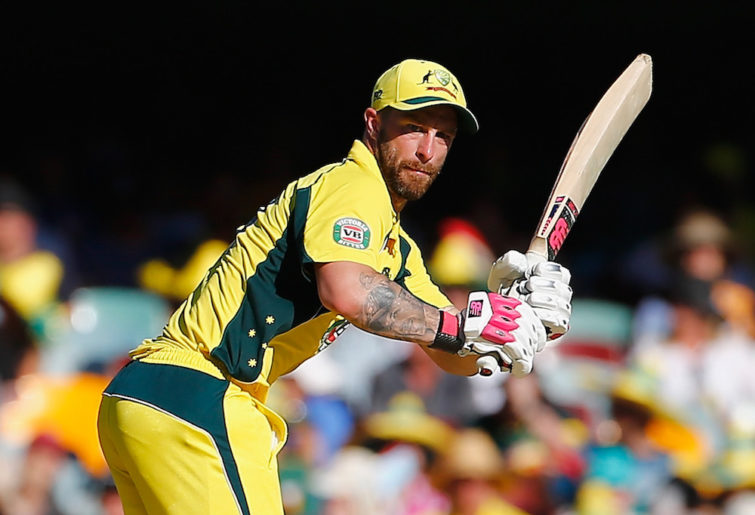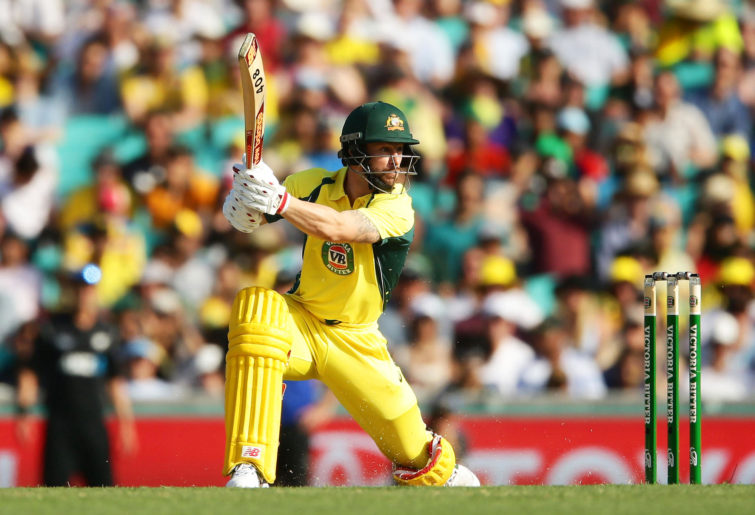Stoinis clubs stunning IPL ton, makes tough chase look a cinch with clutch final-over barrage
Marcus Stoinis produced his first IPL century and it was a beauty. He went 6, 4, 4, 4 to finish off the Lucknow Super…
Choosing a 15-person squad for the World Cup is a difficult task. Inevitably there are controversial selections and there are deserving players who are left along the way.
For each of the ten nations at the 2019 men’s World Cup, identifying the correct balance of players is a process that occurs over several years as coaches, captains and selectors work and find the perfect mix to lift the trophy.
Even though each World Cup nation has had dozens of games over the past few years to identify the 15 best players in the country, the process is still incredibly arbitrary. The point of time at which a World Cup falls can make a great difference to which players are deemed worthy of representing their nation.
Since January 2017 Australia have chosen 36 different cricketers to play one-day internationals. Certain players – remember Sam Heazlett? – were unlikely to be seriously considered to play in the World Cup. However, for a few of those 36 players there would be a genuine regret at the lost chance to play in this year’s cup.
This will be a three-part series examining some of the Australian players who missed out on the 2019 World Cup. For the first part, let’s go back to 13 January 2017 to look at the diverging paths of two Tasmanians.
Friday, 13 January 2017, was the first of 48 one-day internationals that Australia would play between the start of that year and the 2019 World Cup and what would ultimately be a comfortable victory over Pakistan. With an unbeaten score of 100*, Australia’s topscorer was Matthew Wade. After the 2015 World Cup and the retirement of Brad Haddin, Wade had established himself as Australia’s pre-eminent keeper-batsmen.

(Jason O’Brien/Cricket Australia/Getty Images)
Wade’s importance to the Australian team was clearly demonstrated two weeks later. Following an ankle injury to Steve Smith, he was appointed to become Australia’s 24th ODI captain. However, he was never to captain a match for his country. An untimely back injury meant that Aaron Finch was instead appointed to captain the team in Smith’s absence.
With the benefit of hindsight, Wade’s rickety back may have contributed towards him missing the 2019 tournament. Finch proved himself to be a more than able skipper and became Australia’s ODI captain full-time following Smith’s suspension for ball tampering and after Tim Paine had been given a brief, unsuccessful run as skipper.
Once Wade recovered from his back injury he was reselected into the ODI side to play against India in October 2017. After six consecutive single-figure scores, Wade was dropped from the side. While he did play poorly in India, if he had the chance to show that he was a potential skipper of the team, he may have been treated a little more leniently.
Wade initially struggled after being dropped from both the Australian Test and one-day sides in late-2017 and it seemed as though his international career may be over. Yet he would not be deterred that easily. Wade has done everything possible over the last six months to make his way back into the team. With Tim Paine being entrenched in the Test team, and Alex Carey looking good as the one-day and T20 wicketkeeper, Wade has effectively sought to establish himself as a top-order batsman.
He batted excellently in the 2018-19 Big Bash League, making 442 runs at a strike rate of 146. He also scored three centuries in the final five matches of the Sheffield Shield season. Australian selectors have rewarded his form by selecting Wade for Australia A’s tour of England. He’s so far hit two centuries on this tour, including the quickest hundred by an Australian in List A history as he plundered 155 from 71 balls against Derbyshire. With each match it is becoming more likely that Wade will be selected for Australia’s 2019 Ashes squad.

(Matt King – CA/Cricket Australia/Getty Images)
While Matthew Wade’s story may still have a happy ending, the situation is much less promising for another Tasmanian who represented Australia against Pakistan on 13 January 2017. Following Wade’s century, Australia dismissed Pakistan for 176. The top wicket-taker was James Faulkner with figures of 4-32.
Only a few years ago Faulkner was one of the most important players in Australia’s one-day side. He had been an ever-present since 2013 and was man of the match in 2015 World Cup final. At his best Faulkner was an effective death bowler and a hard-hitter with the bat. Yet after the World Cup Faulkner entered an almost constant decline.
This decline was caused in part by a persistent knee injury which he carried into the 2015 World Cup. Following that tournament, Faulkner battled the knee complaint which meant that he would struggle to find the form that made him such an important contributor.
By January 2017 he had not made an ODI half-century for almost two years, which meant there was too much pressure on his bowling. In this game against Pakistan, while Faulkner was Australia’s most effective bowler, he scored only five with the bat. Although he was a solid ODI bowler, his knee injuries meant that he could not be relied upon as a front-line bowler.
In April 2017 Faulkner lost his place in Australia’s ODI team and his Cricket Australia contract. By October 2017 he had played his last game for Australia. Unlike Matthew Wade, it does not seem like there will be a happy end to Faulkner’s story. A combination of injuries and poor form at domestic level suggest that Faulkner will never play for Australia again.
Matthew Wade and James Faulkner were both vital members of Australia’s one-day team who were unceremoniously dropped. While there are elements of their stories which are similar, Wade and Faulkner also show just how much players paths can diverge after being dropped.
In part two of this series I’ll write about the revolving door of fast bowlers that Australia tried and discarded while searching for additional support for Mitchell Starc and Pat Cummins.